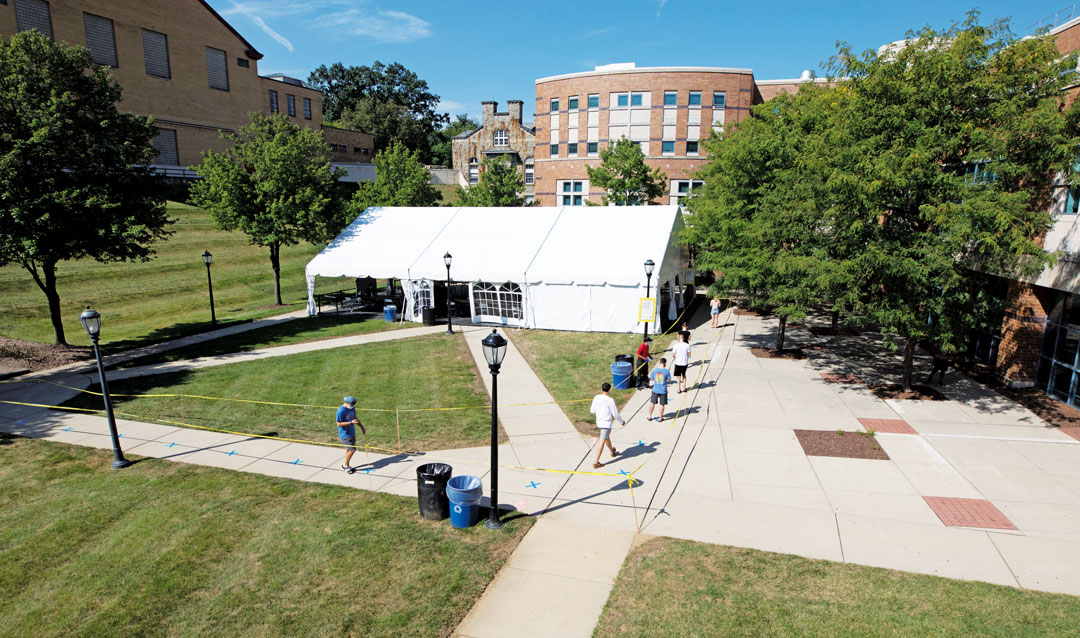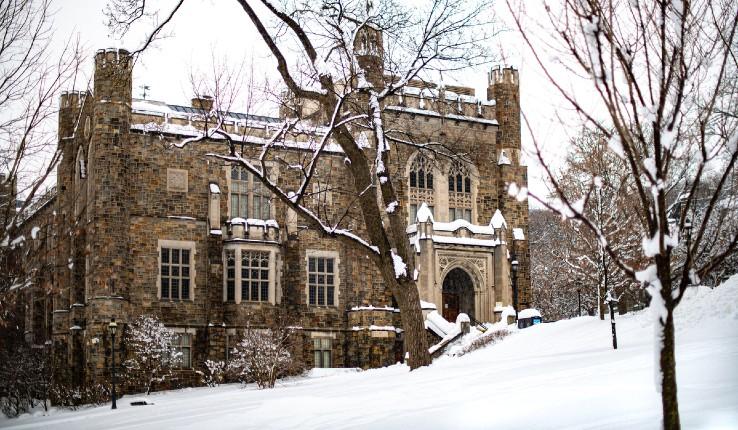In early October, when the number of positive COVID-19 cases reached 22 and 250 students went into quarantine as a close contact to a known or suspected case, Lehigh temporarily scaled back campus activity, including the limiting of gatherings to five people at most, shifting most classes online, closing the gym and libraries, and suspending athletic team practices.
As the semester neared an end, Lehigh provided students with optional and free COVID-19 exit testing. On Nov. 17, as positive cases increased among students, Lehigh shifted to fully remote classes.
“Lehigh has adjusted to any increases in positive cases on campus or changes in guidance from health authorities with new protocols, such as increased testing,” said Provost Nathan Urban, who is leading the COVID-19 Response Team, which meets at least daily. “That has been Lehigh’s strategy from the start. As we work to promote the health and safety of the campus and the Bethlehem community, we are continually reevaluating the effectiveness of our efforts.”
Throughout the semester, Lehigh emphasized key safety procedures and protocols, including the importance of wearing cloth face coverings when around others, staying home if feeling sick, washing hands frequently, avoiding large gatherings and continuing with social distancing.
Students, faculty, staff and visitors were required to complete a self-assessment each day, available through the HawkWatch app for mobile access, and receive clearance before being permitted to access the Lehigh campus.
The HWC increased staffing and expanded to include two separate clinic locations: its original location at Johnson Hall and a new location in Trembley Park. Isolation and quarantine protocols were put into place to support students identified as testing positive and those who came into close contact with individuals who tested positive.
The university implemented rigorous sanitation and mitigation protocols in classrooms, dining facilities, transportation and other settings across campus.
Lehigh’s experience in many areas over the fall semester served to shape plans for the spring. The details and more information about Lehigh’s COVID-19 response can be found at coronavirus.lehigh.edu.






